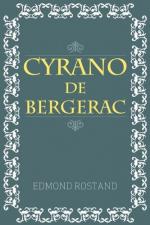|
This section contains 4,273 words (approx. 15 pages at 300 words per page) |

|
SOURCE: "Some Classical Aspects of Cyrano de Bergerac," in Nineteenth-Century French Studies, Vol. I, No. 2, February 1973, pp. 112-24.
In the essay below, Williams interprets Cyrano de Bergerac in terms of the Aristotelian definition of tragedy.
Edmond Rostand's undisputed chef d'oeuvre, Cyrano de Bergerac, is usually and justifiably termed a neo-romantic play, a return to the dauntless, poetic and somewhat bombastic vein of Hugo's Hernani and its contemporaries. Traits of the French romantic writers of the 1820's, who rejected the merits of their predecessors, the French classicists, indeed are reflected in Cyrano. Yet a careful study of Rostand's dramaturgy reveals that certain classical premises, some of which were stressed by Aristotle, are applicable to Cyrano de Bergerac.
Admittedly Aristotle's precepts were established for the appreciation of classical Greek tragedy rather than nineteenth-century French drama; yet the general concepts and standards which he enunciated have continued to guide dramatists as...
|
This section contains 4,273 words (approx. 15 pages at 300 words per page) |

|


